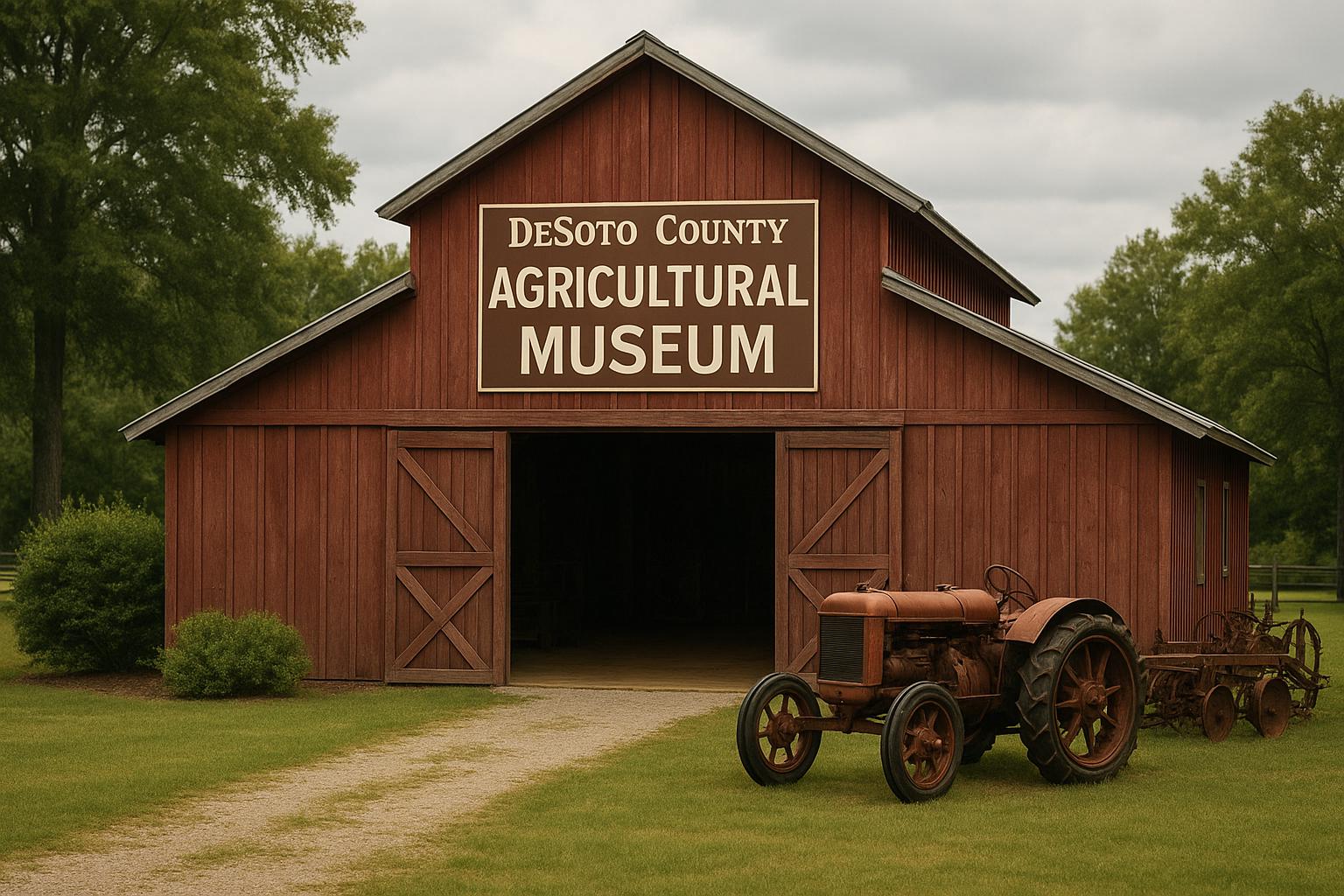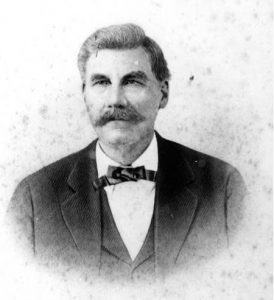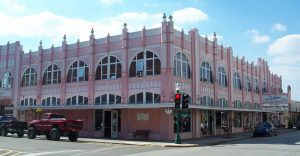Guide to Fort Ogden, Florida
DeSoto County Agricultural Museum

Overview of the DeSoto County Agricultural Museum
The DeSoto County Agricultural Museum, situated in DeSoto County, Mississippi, serves as a pivotal institution for understanding the historical development of agriculture in this region. Its mission is to preserve and display the rich agricultural heritage that has profoundly impacted the local economy and culture. This museum stands out not only as a repository of historical artifacts but also as an educational platform for visitors eager to learn about agricultural evolution.
Exhibits and Collections
A visit to the museum offers a chance to delve into an extensive collection of artifacts that tell the story of agricultural innovation and evolution in DeSoto County. The collection includes an array of historical items, such as farming equipment, tools, and photographs, which provide a visual narrative of the past.
Featured artifacts include historical farm equipment, which offers insight into the technological advancements that have streamlined agricultural practices. The collection prominently features cotton gins—a staple innovation that transformed cotton processing—alongside antique tractors that illustrate the mechanization of farming tasks over the decades. Furthermore, there are comprehensive displays focusing on the production processes of various locally significant crops, providing a detailed understanding of regional agricultural practices.
The museum also curates thematic exhibitions that cover a broad spectrum of topics relevant to agricultural life. This includes exhibitions dedicated to livestock management, which highlight the techniques and practices used in raising and caring for farm animals. Crop cultivation exhibitions offer valuable perspectives on how different methodologies and innovations have been adopted over time to enhance productivity. Meanwhile, exhibitions on rural community living paint a picture of the social and cultural dynamics that revolve around farming life.
Educational Programs
Education is a core component of the museum’s mission. Offering a diverse suite of educational programs, the museum seeks to enlighten visitors of all ages about the intricacies of agricultural systems and sustainable practices. Guided tours provide an interactive learning experience, allowing visitors to explore the exhibits with insights from knowledgeable guides. These tours are designed to engage people actively, fostering a deeper appreciation for the agricultural sector.
Programs at the museum include school field trips, tailored to align with educational curricula and provide students with a hands-on learning opportunity about agriculture’s role in society. Workshops on sustainable farming practices provide practical insights and techniques, emphasizing modern innovations in sustainability and the importance of environmentally friendly approaches to farming. Seasonal events showcasing traditional farming techniques allow participants to witness and learn about historical practices that, while perhaps less common today, laid the foundation for contemporary agriculture.
Events and Activities
The museum serves as a hub for community engagement, regularly organizing events that celebrate the agricultural lifestyle and foster community spirit. These events not only provide entertainment but also serve as educational platforms where local traditions and practices are acknowledged and honored.
Popular events at the museum include harvest festivals, which celebrate the culmination of the growing season and feature an array of activities, from produce markets offering fresh, locally grown fruits and vegetables to live demonstrations of harvesting techniques. Antique tractor shows provide a fascinating glimpse into the mechanical history of farming, showcasing vintage tractors and machinery that have played significant roles in agriculture. Participants can also engage in interactive planting and harvesting demonstrations, getting a hands-on experience of what it’s like to work on a farm and the techniques involved in cultivation and harvest.
Visiting Information
Nestled in a picturesque setting, the DeSoto County Agricultural Museum offers an immersive experience for visitors. Those planning a visit should consider reviewing the latest information available on the museum’s official website to make the most of their visit. This includes details on opening hours, upcoming events, and any specific visitor guidelines that may be in place.
For comprehensive information, potential visitors are encouraged to explore the museum’s official website, which serves as a resource for planning an enriching museum experience.
In conclusion, the DeSoto County Agricultural Museum is not just a display of historical artifacts; it’s a living testament to the rich agricultural legacy of DeSoto County. It serves as a bridge linking the past to the present, offering both educational and participatory opportunities for visitors to immerse themselves in the story of agriculture. Whether you are a history enthusiast, a student, or simply curious, the museum has something valuable to offer everyone.



